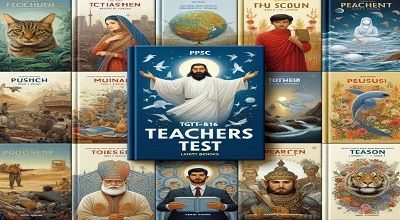Best Books for FPSC TGT-B16 Teachers
For FPSC TGT-B16 teachers aiming to ace their exams, a curated list of top-notch books is essential. These resources not only pave the way for a deeper understanding of relevant subjects but also equip educators with the latest pedagogical strategies and knowledge crucial for their professional growth.
- “Comprehensive Guide to FPSC” by Imran Bashir: Offers a thorough overview of the FPSC exam format, with tips on cracking the test. Inside, you’ll find a wealth of practice questions plus strategies for effective preparation.
- “Advanced Pedagogy for Inquisitive Teachers” by Ayesha Khan: Delves into modern teaching methodologies. This read is pivotal for those keen to enhance their instructional skills, encompassing diverse learning styles and innovative classroom management techniques.
- “Subject Mastery for TGT-B16: A Subject-wise Analysis” by Various Authors: A series of books, each dedicated to a specific subject area. They provide an exhaustive coverage of topics, ensuring educators are well-versed in their respective fields.
- “Educational Psychology for Teachers” by Saima Riaz: Unravels the complexities of student psychology and learning theories. It’s a must-have for educators looking to foster an engaging and supportive learning environment.
- “Current Affairs and General Knowledge Digest” by Hammad Haider: Keeps educators up-to-date with world events, crucial for the General Knowledge section of the FPSC exams. This annual publication compiles significant global happenings in a concise format.
- “English Language Proficiency for Teachers” by Omar Baloch: Focuses on enhancing English language skills. With an emphasis on grammar, vocabulary, and comprehension, it’s invaluable for teachers looking to improve their communication abilities.
- “Information & Communication Technology (ICT) for Educators” by Farhan Qureshi: Guides teachers through integrating technology into their teaching practices. This book covers essential ICT tools and how they can be used to enrich the learning experience.
Conclusion
While this list is a strong starting point, remember, that continuous learning and adaptation to new educational trends remain key. Engaging in forums, workshops, and further reading can complement these resources significantly.
